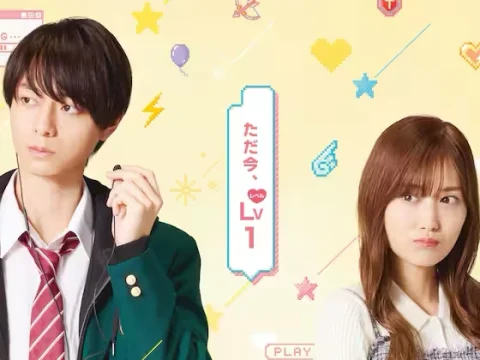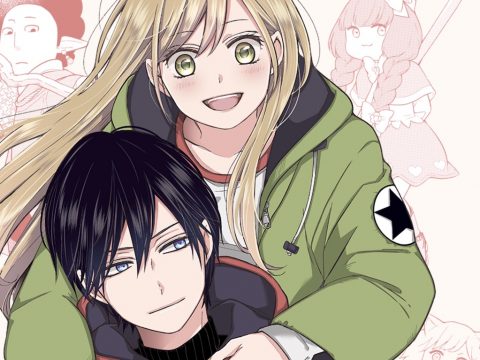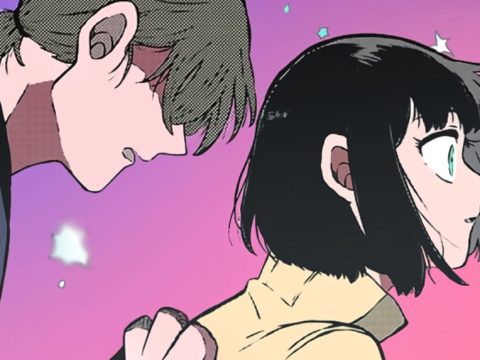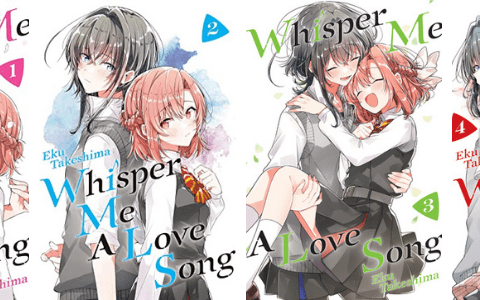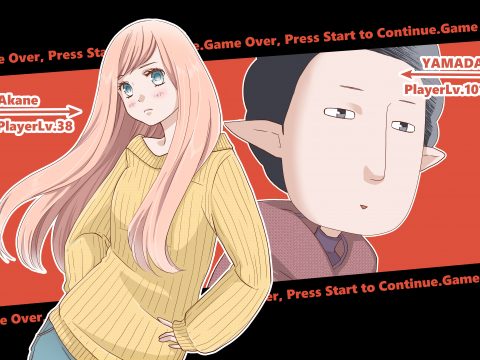
Nate Derr is a translator working on series like BLUE LOCK, Shaman King: The Super Star, and My Love Story with Yamada-kun at Lv999, among many others. For some insight into the process behind his work, we’re excited to share an interview between Nate and Mangamo CEO Spencer Knuttila. Read on to learn all about Nate’s translating work, thoughts on AI and more.
***
Spencer: Hey Nate, how you doing these days?
Nate: I’m doing well, Spencer! I’m at a good level of busy and settling into autumn, which is my favorite season. Thanks for asking.
What titles are you currently translating right now?
I’m translating 14 series right now, so I won’t list all of them, but the ones I’m most excited about are Blue Lock, Galaxias, Shaman King: The Super Star, and of course Yamada-kun.
Tell us a little bit about your background and how you got into manga translation.
I majored in Japanese in college and taught English in Japan for a year. I did a little translation for school and then on my own after, but couldn’t quite get my foot in the door at that time. About five years later, I knew I needed to make a career change, so I started looking again and managed to find an agency that was hiring. The rest is history!
When it comes to manga, what specifically interests you or draws you to it? Have you always been a fan?
I got into anime as a kid and started reading manga in junior high, and have loved both ever since. Manga, and sequential art in general, is such a powerful medium, and the range of stories and art styles out there is really kind of mind-blowing. I love how someone with pens and paper can create stories that touch and inspire people all over the world, and being able to have some small role in that chain of connection is a privilege I don’t take lightly.

Spencer Knuttila’s manga-fied depiction of Nate
What does your translation process look like?
Typically, I’ll skim through a project to get a sense of where the story is going, and then just get down to going through it line-by-line. I like to think of each line as a little puzzle to be solved. I pay close attention to the various big-impact moments, and will try to pause and connect emotionally with the character(s) in order to best convey their feelings in the dialogue. I think it’s important to remain faithful to the original work, and I also think following that spirit of faithfulness sometimes means tweaking a line here or there in service of that emotional connection or the rhythm of the line. If a translation tries too hard to be literal, it will often just fall flat.
It’s a spicy topic, but what are your thoughts on AI as a means of manga translation? Do you think it can capture the nuance of the language, the underlying themes and emotion in manga, the SFX, or the ever-so-challenging gion-go?
I think it’s a dead-end, frankly. Between underlying emotional currents and things that are implied or omitted, as is often the case in comics or in Japanese, I think there’s just too much going on for a program to competently translate.
On that topic, you’re a human translator. Everyone who has helped bring manga to the world over the past decades has been a human translator. Now that industry faces the threat of being replaced by AI. How important is human translation to you?
I suppose I’m biased, as I would not like my livelihood to be replaced by an algorithm, but even if I wasn’t working in this job, I wouldn’t want to read AI-translated manga. An artist I respect is of the opinion that those advocating for AI art have deeply misunderstood the meaning and purpose of art, and I agree completely. As things stand now, there’s a direct human chain from the writer/artist through a human translator to the reader, and I think there’s something vitally important in there. Something would undoubtedly be lost if AI were inserted into that chain.
In lieu of all the new challenges and changes facing the translation industry, what kind of advice would you give to anyone who wants to get into manga translation?
Don’t expect to get rich! It’s a somewhat precarious existence, and you really have to be doing it because you love doing it. But that said, I really wouldn’t trade it for anything else. If it’s something you want to do, I would suggest studying as much Japanese as you can, preferably in some sort of formal program. Read a wide variety of manga in the original Japanese, and a wide variety of translated manga. Make comparisons; I’ve found it helpful to investigate series with anime adaptations, as the subtitle translations are often slightly different than the manga translations. Those minute differences give you some insight into the craft and how different translators approach things.
 Okay, let’s get into the juicy stuff, as if the previous questions weren’t juicy! As you know, the latest chapter of Yamada-Kun has just come out. Were you excited to get back into all of these characters?
Okay, let’s get into the juicy stuff, as if the previous questions weren’t juicy! As you know, the latest chapter of Yamada-Kun has just come out. Were you excited to get back into all of these characters?
I was thrilled! It felt like being reunited with old friends after a long time apart. I was also relieved to hear that Mashiro-sensei is feeling well enough to resume the series. Here’s hoping it continues for a long time.
You and I have spoken about this a little bit, but the characters in Yamada-Kun are all very different with distinct personalities. Was it a challenge trying to properly represent that for the English-reading audience?
I really don’t find it to be a challenge, and I think that’s a testament to the distinct and relatable characters Mashiro-sensei has created. Their personalities feel very clear to me, and so it makes it easy to find unique voices for each of them. I hope that’s been conveyed in the translation.
Do you have a favorite character in Yamada-kun and why?
If I had to choose, I think I’d go with Eita-kun. He’s a complex guy, and I like how his generally silly demeanor is often something of a cover for a quiet maturity. He can be guiding the other characters one minute and then acting totally ridiculous the next, and I love seeing those various facets portrayed so well in one character.
Finally, Yamada-kun has obviously become a popular and much beloved title. This means that all of your work on it has been able to connect with people, personally, all around the world. What does having that opportunity mean to you? Is there anything you want to say to the fans?
It really means the world to me, even though it kind of makes my head spin if I think too long about it. Yamada-kun and all the series I work on are the products of deep devotion to a demanding craft and a need to share certain ideas and emotions with the world; I’m constantly striving to facilitate that outward flow as best I can, without getting in the way or distorting anything. My love of manga and Japanese culture was a big motivator to study Japanese in the first place, and I’d love if the comics I’ve translated could help inspire and broaden the worldviews of young people today.
Thanks to Mangamo for providing this interview!


